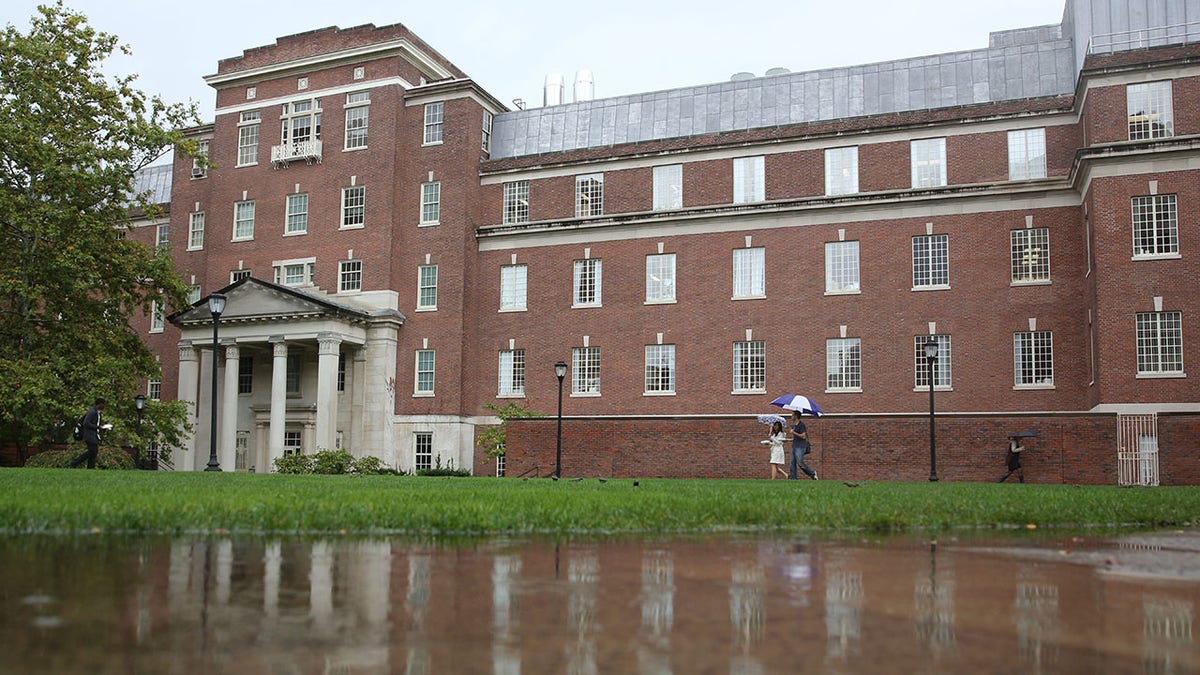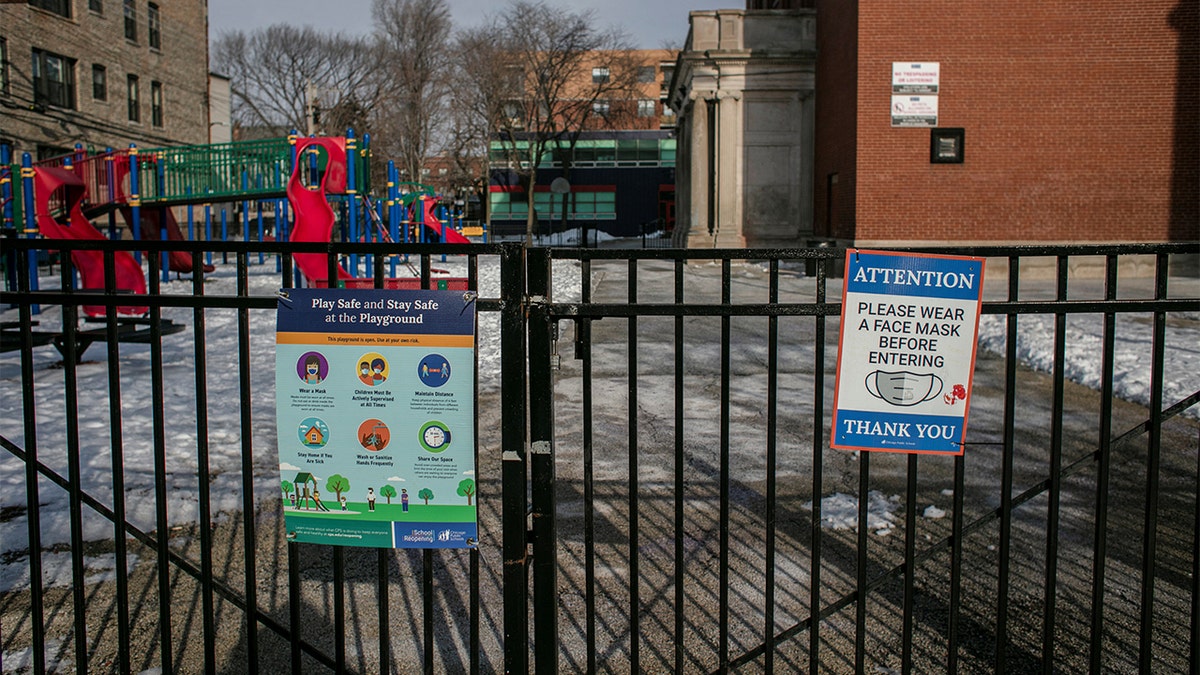Dr. Saphier: Biden should condemn teachers unions like he condemns unvaccinated
Fox News medical contributor Dr. Nicole Saphier argues teachers unions are putting politics ahead of children and weighs in on the CDC's latest testing rules.
Brown University economics professor Emily Oster condemned universities resorting to remote learning amid the omicron coronavirus variant, calling the decisions an over-cautious failure to protect student interests.
Oster, a longtime advcoate for opening schools during the pandemic that made her a lightning rod for criticism on the left, outlined her frustrations in a piece for The Atlantic headlined, "Universities Need to Catch Up to the Post-vaccine Reality."

A sign taped to the front door of Pulaski International School of Chicago reads, School Closed after Chicago Public Schools, the nation's third-largest school district, said it would cancel classes since the teachers' union voted in favor of a return to remote learning, in Chicago, Jan. 5, 2022. REUTERS/Jim Vondruska (REUTERS/Jim Vondruska)
Specifically, she denounced the recent decision from schools such as UCLA, Yale, and Duke to switch to online learning in January to combat the omicron variant of the coronavirus.
"From some corners, this concern for the surrounding community will be met with applause. In my view, however, it ignores the primary group that a university serves: its students. Moving to remote schooling when the conditions on the ground have changed so dramatically is an abdication of universities’ responsibility to educate students and protect all aspects of their health," Oster wrote.
Oster acknowledged that this move was similar to previous choices to shut down schools during the beginning of the pandemic in March 2020. However, she also insisted that "the world has changed" since then with the introduction of vaccines.

Yale School of Medicine, across the road from Yale-New Haven Hospital, New Haven, Connecticut. (Photo by Tim Clayton/Corbis via Getty Images) (Getty Images)
"Yet the rise of the Omicron variant and the ensuing spike in COVID cases have led many university administrators to articulate the same old concerns: Students could possibly spread the virus to community members, who could in turn end up in hospitals, which could be overwhelmed. Such a chain reaction is of course possible, but the probabilities are not what they used to be, because the great majority of students are now vaccinated, and the percentage of people in the surrounding communities who are at risk of landing in the hospital is much, much smaller than it used to be," Oster added.
She also added, "I don’t know if universities were right to go largely or fully remote in 2020. The world before vaccines was a different one, and the choices were difficult. I am certain, though, that moving to remote instruction is the wrong choice now."
Oster’s comments follow additional liberal journalists experiencing a new perspective on COVID-19 measures including school shutdowns. Many similar to Oster acknowledged consequences felt by students after losing in-person education.
THE LEFT RETREATS FROM ‘WAR ON COVID’ MESSAGING AS AMERICANS ACCEPT VIRUS IS HERE TO STAY: WATTERS

Darwin Elementary after Chicago Public Schools, the nation's third-largest school district, said it would cancel classes since the teachers' union voted in favor of a return to remote learning, in Chicago, Jan. 5, 2022. REUTERS/Jim Vondruska (REUTERS/Jim Vondruska)
"But universities also have a responsibility to their students. And this is not just a minor responsibility; it is their core responsibility. Parents entrust their children to universities. Many professors—myself included—have looked those parents in the eye and told them a version of I will watch out for your child. We have a responsibility to follow through on this now. We can do it very simply: by letting them go to school," Oster wrote.
CLICK HERE TO GET THE FOX NEWS APP
She concluded "A couple of weeks ago, Brown announced we would be back in January, in person, as planned. This wasn’t a decision the administrators took lightly, I am sure. But it was the right one. I’ll be back in the classroom, with my students, where they belong."









































